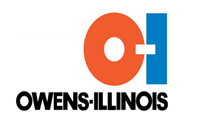South Africa State-Owned Enterprises Report 2021 with Profiles of 24 Public Entities Including Transnet, Eskom, South African Airways and Denel - ResearchAndMarkets.com
The "State-Owned Enterprises in South Africa 2021" report has been added to ResearchAndMarkets.com's offering.
This report focuses on South Africa's major state-owned entities and includes information on the major enterprises, their performance and the factors that influence them including the pandemic, economic factors, their debt and performance levels and leadership issues.
There are profiles of 24 public entities which include major SOEs such as Transnet, Eskom, South African Airways and Denel, and other entities under state ownership and control such as the Development Bank of Southern Africa and Independent Development Trust.
State-owned Enterprises South Africa:
The ongoing financial and operational crises faced by a number of major state-owned enterprises (SOEs) casts doubt on their practicality and survival. Total SOE debt stands at a staggering R692.9bn. The most recent budget review indicated that SOEs have reported poor growth, high costs and elevated debt servicing costs, and several appear to be at risk of defaulting on their debts. Prospective reforms and increasing private-sector participation provide some hope for South Africa's SOEs.
Corruption:
The Zondo Commission of Inquiry into allegations of state capture in the public sector, including organs of state, has outlined corruption at the highest echelons of entities such as Transnet, Eskom, SAA and Denel and provides some explanation for the extent of the financial mismanagement at these enterprises. The poor performance of SOEs continues to reflect crumbling infrastructure, poor and ever-changing leadership, corruption, wasteful expenditure and mismanagement of funds.
Major Changes:
The government announced in June that it plans to sell 51% of South African Airways to a private consortium and that it would retain a minority stake. The proposed sale will amount to the first privatisation in decades and represents a major shift from the state's stance on SOE control and ownership. Government will also now permit independent power producers to increase self-generation without obtaining a licence from 1MW to 100MW. Both announcements represent a major shift in government's stance and indicate an awareness of the SOEs' limitations.
Key Topics Covered:
1. Introduction
2. Description of the Industry
2.1. Industry Value Chain
2.2. Geographic Position
3. Size of the Industry
4. State of the Industry
4.1. Local
4.1.1. Corporate Actions
4.1.2. Regulations
4.1.3. Socio-Economic Development
4.2. International
5. Influencing Factors
5.1. Coronavirus
5.2. Economic Environment
5.3. State Capture and Corruption
5.4. Government Guarantees and Support
5.5. Environmental Concerns
5.6. Labour
6. Competition
7. SWOT Analysis
8. Outlook
9. References
9.1. Publications
9.2. Websites
Appendix
- Summary of Notable Players
- Company Profiles
- Air Traffic and Navigation Services Company Ltd
- Airports Company South Africa Soc Ltd
- Alexkor Soc Ltd
- Armaments Corporation of South Africa Soc Ltd
- Broadband Infraco Soc Ltd
- Denel Soc Ltd
- Development Bank of Southern Africa
- Eskom Holdings Soc Ltd
- Financial Sector Conduct Authority
- Independent Development Trust
- Industrial Development Corporation of South Africa Ltd
- Land and Agricultural Development Bank of South Africa
- Passenger Rail Agency of South Africa
- Petroleum Oil and Gas Corporation of South Africa Soc Ltd (The)
- Sef Soc Ltd
- South African Airways Soc Ltd
- South African Broadcasting Corporation Soc Ltd
- South African Forestry Company Soc Ltd
- South African Nuclear Energy Corporation Soc Ltd (The)
- South African Weather Service
- Suid-Afrikaanse Poskantoor Soc Ltd
- Telkom Sa Soc Ltd
- Trans-Caledon Tunnel Authority
- Transnet Soc Ltd
For more information about this report visit https://www.researchandmarkets.com/r/pbxyij
View source version on businesswire.com: https://www.businesswire.com/news/home/20210715005768/en/



